Novel Name : The Mech Touch
The Mech Touch Chapter 1404 Beyond Purpose
The hunting team rested only for a short period after taking down the huge panther. As mechs started to remain on guard, Ves and a handful of mech technicians exited their legged transports and performed perfunctory maintenance and repairs on the mechs engaged in battle.
Only the knight mech that faced the brunt of the panther's charges required some minor fixes. The mech had been designed to absorb a lot of shock, and it had properly braced and angled itself to redirect a large portion of the forces slamming into its shield.
\"Alright, it's done!\" Ves shouted as he recalled the mech technicians who replaced a few minor broken subcomponents.
The work they performed amounted to nothing but an emergency patch. Only after they rested for the night would the maintenance crew be able to perform more thorough maintenance.
Right now, the carcass bleeding and stinking all over the place made this location a very poor resting spot! Who knew how many hungry cats would converge on the site!
The hunting team departed within an hour. Lady Miralix declined to take any trophies from the corpse of the brightly-colored panther. The noblewoman and her hunters considered the huge cat to be too young, juvenile, stupid and unworthy to celebrate its death!
Back inside the legged transport, Ves harbored mixed feelings about the attitudes expressed by the hunting consultants and other people on the team.
Their callous treatment of huge cats like the panther made it clear that they saw every huge cat in the hunting zones as prey and only prey.
The only value the huge cats offered to the hunters was how much bragging rights they provided to the hunters. It was as if every huge cat wandered around with a floating label on top of their heads which signified how much reputation and prestige they provided!
The panther they just defeated evidently provided so little value that the hunters outright dismissed the kill.
\"What do the geneticists and exobiologists who designed this ugly panther think about their creation?\"
They likely care little to nothing about their own creations. They cooked up so many different species of huge cats and dumped them onto the Asco Continent in order to collect experimental data.
The more successful species that grew into Crown Cats received the bulk of their attention. The lesser ones who fared less well against the hunters were probably regarded as genetic trash that needed to be cleaned up to make room for deadlier and more successful prey.
Normally, Ves cared little for the methods and machinations of biotech researchers. The crazy specialists constantly played around with genes sampled from newly-discovered exobeasts or synthesized entirely from their labs. The type of work they did differed significantly from the work of a typical mech designer.
One played god, while the other designed machines.
\"Yet the difference isn't so clear now in my case.\" He whispered to himself.
He cast his eyes down his firm and dexterous hands. For now, he designed mechs with his hands.
In the future, he might be able to shape more than mechs with his limbs. Perhaps he might directly create a new lifeform with a few gestures of his hands one day!
Having read the research data and files that Lucky had once lifted from a hidden research outpost, Ves knew that the attitudes held by the hunters were also shared among the specialists
who created the cats.
\"There are very few people who actually respect the huge cats.\"
Only the hardcore, professional hunters who lived by the hunter's creed respected every creature they felled. Sadly, Lady Miralix declined to hire any of them on her hunting team.
To her, rigid traditions had no place in her current mission. All she cared about was hunting down a notable Crown Cat to provide a powerful boost to her career.
\"In a way, the huge cats are fulfilling their purpose. Why should I pity their existences?\"
No matter how much he tried to dismiss the issue, his doubts continued to come back to haunt him. This was because his recent experimentation drew obvious parallels with the work of House Laterna's biotech researchers.
Both of them created new forms of life. While their methods and their products diverged, the implications of their work were remarkably similar.
\"What is the responsibility of a creator to their work?\"
Ves struggled with this question ever since he became a mech designer.
Sometimes he washed his hands of them as soon as they fell into the hands of his customers. This applied the most to his mass-market products.
Sometimes he cared a lot about how they were being utilized. This only applied to some of his custom mechs and gold label mechs.
The somewhat inconsistent approach made it clear that Ves had never really come up with a good answer to this difficult question.
On top of that now came the consideration of how he should approach the creation of spiritual products.
Even though he called them products, they were just as alive as the diverse species of cats created and spread throughout Felixia.
It was easy to abuse a lifeless object. If Ves held a nutrient pack for example, he had no qualms about throwing it on the ground and trampling it with his foot.
If he instead wanted to do the same with a cuddly house cat, he wouldn't be able to bring himself to exhibit such cruelty!
\"Well, it's different if it's a nasty bug, but whatever!\"
The point was that living and potentially sentient lifeforms possessed intrinsic rights! They deserved better treatment!
Ves constantly thought back on his first spiritual product and how he should regard it during every stage of its existence.
\"A product is created to fulfill a specific purpose. Yet does life have a purpose?\"
\"Meow.\"
He scratched Lucky's ears. \"Heh. Even pets like you have a purpose, you know.\"
Even if Lucky had been designed to eat minerals and convert them to gems, Ves thought of his cat as something more than a production machine.
Lucky was his friend and companion. His liveliness and his capacity to exhibit emotions such as love, hate, irritation and amusement made him part of the family.
If Lucky could become a beloved companion, then what about the spiritual fragments he procured and the spiritual products he intended to produce in the future?
\"Does life have to fulfill a specific purpose? What if its job is done? What happens next.\"
The struggles he faced with regard to continuity, free will and control all became more acute the more he delved into the path of life.
How much responsibility should he show to his living spiritual creations?
How many rights should he bestow to his spiritual products, and how far should he go in considering their wellbeing?
\"If they are merely products, this would be so much easier to deal with. But they're not! They're alive!\"
Not only were his spiritual products alive, but they were also sentient. So far, Ves had never encountered a spiritual entity that wasn't sentient or emerged from a sentient being.
This complicated the matter further because it cut off the convenient option of treating his spiritual products as mundane as livestock, which solely lived to produce meat for consumption.
After a bit of thinking, Ves decided to hold off on declaring a bill of rights for spiritual existences.
Instead, he tentatively developed a number of principles that eased his conscience and made him feel better about his future works.
First, as spiritual products were meant to serve as vital components of his mechs, he extended the same regard he held for mechs.
Without a design spirit, his mechs were unable to come to life. For this reason, the spiritual fragments and products that fulfilled this role deserved to be considered living beings rather than something lesser.
\"Rather than consider them objects that just happen to be alive, it's better to treat them as living beings that are hired to perform a specific purpose.\"
Ves already treated spiritual entities such as Qilanxo's spiritual fragment and Prophet Ylvaine's spiritual fragments in this way. In essence, he was merely formalizing what he already believed in and extended the same treatment to the lesser design spirits of his older mechs.
Each of them, no matter how strong or weak they became, deserve the basic respect of a living, sentient being.
Secondly, the existences of his spiritual creations encompassed more than fulfilling their purpose.
Each spiritual entity was alive. Each of them possessed their own hopes, dreams, ambitions and priorities. While Ves really wanted them to serve as the design spirits of his mechs and mech designs in perpetuity, there may come a time when they wanted to move on and do something else in their spiritual lives.
Of course, Ves couldn't allow them to quit their jobs willy-nilly, especially if the mech models they enhanced were still current and widely-used!
\"I have to make a compromise here. Total freedom and total control are both untenable.\"
He did not wish to enslave his spiritual products and force them to labor on his behalf when they really wanted to do something else.
However, as a mech designer, he deeply relied on design spirits to elevate the quality of his mechs in a way that no other competitor could match!
For this reason, extending total freedom to his spiritual products and allowing them to express their free will would certainly lead to many disasters!
Instead of choosing between one direction or the other, Ves decided to straddle the middle line. As long as his design spirits fulfilled their duty for a certain period of existence, Ves would allow them to 'resign' from their work and find a different purpose in life.
\"I can always create another product to fulfill the void left behind.\" He muttered.
Offering hope to his spiritual products and promising that they would be able to take the reins of their own lives after fulfilling their obligatory duties would hopefully keep them motivated.
\"They'll stay honest and dutiful as long as they are incentivized to do so!\"
Perhaps some spiritual products liked to work as design spirits and would voluntarily choose to extend their 'employment contracts'. Others might decide they wanted to explore the galaxy or the imaginary realm.
Whatever they decided, Ves wanted them to make their own choices. Only by being empowered to choose their own future would they be willing to work for him in earnest!
This summed up his third principle, which was that spiritual entities were obligated to do their jobs and not slack off or quit prematurely for the duration of their employment contracts.
Ves snorted. Would spiritual entities even abide by contracts?
Maybe he should find a way to form a binding spiritual contract. With all of the potential that spirituality offered, something as simple as a contract that bound two parties to a specific set of terms ought to be possible.
In any case, the three principles he formulated this day would henceforth act as his guiding approach!
It was as if a huge weight lifted off his shoulders. In the end, he took a radically different approach to his creations than the biotech researchers of House Laterna.
He managed to come up with a simple set of principles that safeguarded his right to exert control while at the same time granted some fundamental rights to his spiritual products.
\"This ought to be sufficient!\"
The principles aligned closely to the path of balance that he currently followed.
The path of determinism would seek to impose absolute control over his spiritual products, to the point of robbing them of the vitality that life had to offer.
\"What's the point of life if they can't express themselves?\"
They'd end up as sad as the huge cats in Asco, who were only formulated into existence to provide hunters with trophies and research data to House Laterna's research institutions.
In contrast, the path of life would obligate him to surrender full control and let his spiritual creations choose their own purpose.
While this kind of unbound forms of life held the highest potential to produce something remarkable, the lack of order and predictability made them far too hard to work with in the long run.
All of his mechs ought to be reliable! Ves would not be able to stay in business if the quality of his mechs fluctuated wildly from model to model!
The three principles of life he formulated avoided these undesirable outcomes. Though not everyone got what they wanted, no one received unfair treatment!
Only the knight mech that faced the brunt of the panther's charges required some minor fixes. The mech had been designed to absorb a lot of shock, and it had properly braced and angled itself to redirect a large portion of the forces slamming into its shield.
\"Alright, it's done!\" Ves shouted as he recalled the mech technicians who replaced a few minor broken subcomponents.
The work they performed amounted to nothing but an emergency patch. Only after they rested for the night would the maintenance crew be able to perform more thorough maintenance.
Right now, the carcass bleeding and stinking all over the place made this location a very poor resting spot! Who knew how many hungry cats would converge on the site!
The hunting team departed within an hour. Lady Miralix declined to take any trophies from the corpse of the brightly-colored panther. The noblewoman and her hunters considered the huge cat to be too young, juvenile, stupid and unworthy to celebrate its death!
Back inside the legged transport, Ves harbored mixed feelings about the attitudes expressed by the hunting consultants and other people on the team.
Their callous treatment of huge cats like the panther made it clear that they saw every huge cat in the hunting zones as prey and only prey.
The only value the huge cats offered to the hunters was how much bragging rights they provided to the hunters. It was as if every huge cat wandered around with a floating label on top of their heads which signified how much reputation and prestige they provided!
The panther they just defeated evidently provided so little value that the hunters outright dismissed the kill.
\"What do the geneticists and exobiologists who designed this ugly panther think about their creation?\"
They likely care little to nothing about their own creations. They cooked up so many different species of huge cats and dumped them onto the Asco Continent in order to collect experimental data.
The more successful species that grew into Crown Cats received the bulk of their attention. The lesser ones who fared less well against the hunters were probably regarded as genetic trash that needed to be cleaned up to make room for deadlier and more successful prey.
Normally, Ves cared little for the methods and machinations of biotech researchers. The crazy specialists constantly played around with genes sampled from newly-discovered exobeasts or synthesized entirely from their labs. The type of work they did differed significantly from the work of a typical mech designer.
One played god, while the other designed machines.
\"Yet the difference isn't so clear now in my case.\" He whispered to himself.
He cast his eyes down his firm and dexterous hands. For now, he designed mechs with his hands.
In the future, he might be able to shape more than mechs with his limbs. Perhaps he might directly create a new lifeform with a few gestures of his hands one day!
Having read the research data and files that Lucky had once lifted from a hidden research outpost, Ves knew that the attitudes held by the hunters were also shared among the specialists
who created the cats.
\"There are very few people who actually respect the huge cats.\"
Only the hardcore, professional hunters who lived by the hunter's creed respected every creature they felled. Sadly, Lady Miralix declined to hire any of them on her hunting team.
To her, rigid traditions had no place in her current mission. All she cared about was hunting down a notable Crown Cat to provide a powerful boost to her career.
\"In a way, the huge cats are fulfilling their purpose. Why should I pity their existences?\"
No matter how much he tried to dismiss the issue, his doubts continued to come back to haunt him. This was because his recent experimentation drew obvious parallels with the work of House Laterna's biotech researchers.
Both of them created new forms of life. While their methods and their products diverged, the implications of their work were remarkably similar.
\"What is the responsibility of a creator to their work?\"
Ves struggled with this question ever since he became a mech designer.
Sometimes he washed his hands of them as soon as they fell into the hands of his customers. This applied the most to his mass-market products.
Sometimes he cared a lot about how they were being utilized. This only applied to some of his custom mechs and gold label mechs.
The somewhat inconsistent approach made it clear that Ves had never really come up with a good answer to this difficult question.
On top of that now came the consideration of how he should approach the creation of spiritual products.
Even though he called them products, they were just as alive as the diverse species of cats created and spread throughout Felixia.
It was easy to abuse a lifeless object. If Ves held a nutrient pack for example, he had no qualms about throwing it on the ground and trampling it with his foot.
If he instead wanted to do the same with a cuddly house cat, he wouldn't be able to bring himself to exhibit such cruelty!
\"Well, it's different if it's a nasty bug, but whatever!\"
The point was that living and potentially sentient lifeforms possessed intrinsic rights! They deserved better treatment!
Ves constantly thought back on his first spiritual product and how he should regard it during every stage of its existence.
\"A product is created to fulfill a specific purpose. Yet does life have a purpose?\"
\"Meow.\"
He scratched Lucky's ears. \"Heh. Even pets like you have a purpose, you know.\"
Even if Lucky had been designed to eat minerals and convert them to gems, Ves thought of his cat as something more than a production machine.
Lucky was his friend and companion. His liveliness and his capacity to exhibit emotions such as love, hate, irritation and amusement made him part of the family.
If Lucky could become a beloved companion, then what about the spiritual fragments he procured and the spiritual products he intended to produce in the future?
\"Does life have to fulfill a specific purpose? What if its job is done? What happens next.\"
The struggles he faced with regard to continuity, free will and control all became more acute the more he delved into the path of life.
How much responsibility should he show to his living spiritual creations?
How many rights should he bestow to his spiritual products, and how far should he go in considering their wellbeing?
\"If they are merely products, this would be so much easier to deal with. But they're not! They're alive!\"
Not only were his spiritual products alive, but they were also sentient. So far, Ves had never encountered a spiritual entity that wasn't sentient or emerged from a sentient being.
This complicated the matter further because it cut off the convenient option of treating his spiritual products as mundane as livestock, which solely lived to produce meat for consumption.
After a bit of thinking, Ves decided to hold off on declaring a bill of rights for spiritual existences.
Instead, he tentatively developed a number of principles that eased his conscience and made him feel better about his future works.
First, as spiritual products were meant to serve as vital components of his mechs, he extended the same regard he held for mechs.
Without a design spirit, his mechs were unable to come to life. For this reason, the spiritual fragments and products that fulfilled this role deserved to be considered living beings rather than something lesser.
\"Rather than consider them objects that just happen to be alive, it's better to treat them as living beings that are hired to perform a specific purpose.\"
Ves already treated spiritual entities such as Qilanxo's spiritual fragment and Prophet Ylvaine's spiritual fragments in this way. In essence, he was merely formalizing what he already believed in and extended the same treatment to the lesser design spirits of his older mechs.
Each of them, no matter how strong or weak they became, deserve the basic respect of a living, sentient being.
Secondly, the existences of his spiritual creations encompassed more than fulfilling their purpose.
Each spiritual entity was alive. Each of them possessed their own hopes, dreams, ambitions and priorities. While Ves really wanted them to serve as the design spirits of his mechs and mech designs in perpetuity, there may come a time when they wanted to move on and do something else in their spiritual lives.
Of course, Ves couldn't allow them to quit their jobs willy-nilly, especially if the mech models they enhanced were still current and widely-used!
\"I have to make a compromise here. Total freedom and total control are both untenable.\"
He did not wish to enslave his spiritual products and force them to labor on his behalf when they really wanted to do something else.
However, as a mech designer, he deeply relied on design spirits to elevate the quality of his mechs in a way that no other competitor could match!
For this reason, extending total freedom to his spiritual products and allowing them to express their free will would certainly lead to many disasters!
Instead of choosing between one direction or the other, Ves decided to straddle the middle line. As long as his design spirits fulfilled their duty for a certain period of existence, Ves would allow them to 'resign' from their work and find a different purpose in life.
\"I can always create another product to fulfill the void left behind.\" He muttered.
Offering hope to his spiritual products and promising that they would be able to take the reins of their own lives after fulfilling their obligatory duties would hopefully keep them motivated.
\"They'll stay honest and dutiful as long as they are incentivized to do so!\"
Perhaps some spiritual products liked to work as design spirits and would voluntarily choose to extend their 'employment contracts'. Others might decide they wanted to explore the galaxy or the imaginary realm.
Whatever they decided, Ves wanted them to make their own choices. Only by being empowered to choose their own future would they be willing to work for him in earnest!
This summed up his third principle, which was that spiritual entities were obligated to do their jobs and not slack off or quit prematurely for the duration of their employment contracts.
Ves snorted. Would spiritual entities even abide by contracts?
Maybe he should find a way to form a binding spiritual contract. With all of the potential that spirituality offered, something as simple as a contract that bound two parties to a specific set of terms ought to be possible.
In any case, the three principles he formulated this day would henceforth act as his guiding approach!
It was as if a huge weight lifted off his shoulders. In the end, he took a radically different approach to his creations than the biotech researchers of House Laterna.
He managed to come up with a simple set of principles that safeguarded his right to exert control while at the same time granted some fundamental rights to his spiritual products.
\"This ought to be sufficient!\"
The principles aligned closely to the path of balance that he currently followed.
The path of determinism would seek to impose absolute control over his spiritual products, to the point of robbing them of the vitality that life had to offer.
\"What's the point of life if they can't express themselves?\"
They'd end up as sad as the huge cats in Asco, who were only formulated into existence to provide hunters with trophies and research data to House Laterna's research institutions.
In contrast, the path of life would obligate him to surrender full control and let his spiritual creations choose their own purpose.
While this kind of unbound forms of life held the highest potential to produce something remarkable, the lack of order and predictability made them far too hard to work with in the long run.
All of his mechs ought to be reliable! Ves would not be able to stay in business if the quality of his mechs fluctuated wildly from model to model!
The three principles of life he formulated avoided these undesirable outcomes. Though not everyone got what they wanted, no one received unfair treatment!
Rankings
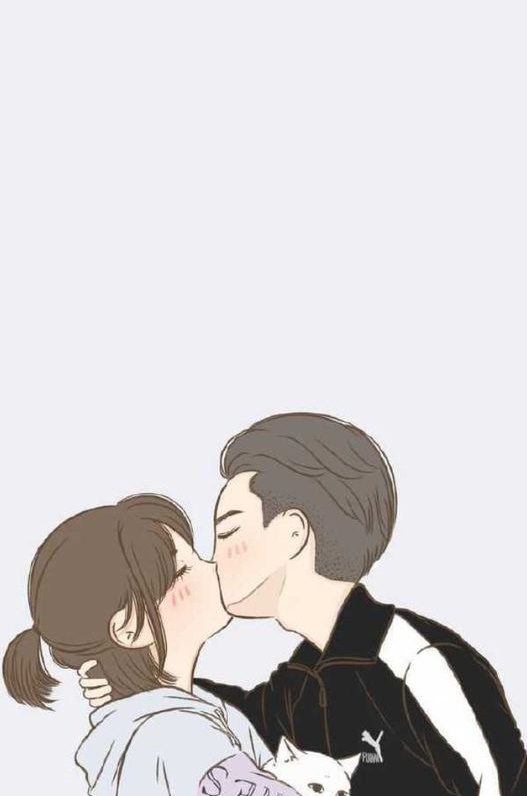
To Cure the Playboy
Hailey Allen
Read To Cure the Playboy by Hailey Allen. Genre: Chinese novels. Read the full novel online for free hereRecovering from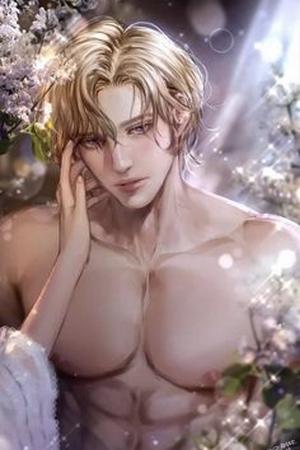
Love Has its Will by Selena Lewis
Selena Lewis
Read Love Has its Will by Selena Lewis by Selena Lewis. Genre: Chinese novels. Read the full novel online for free hereT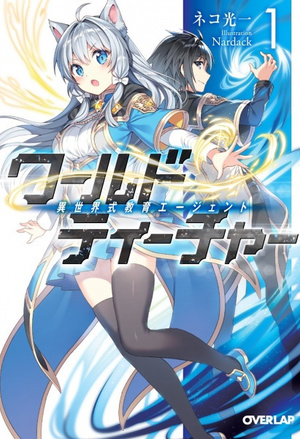
World Teacher – Other World Style Education & Agent
Neko Kouichi
A man who was once called the world strongest agent ended up becoming a teacher after his retirement to train the new ge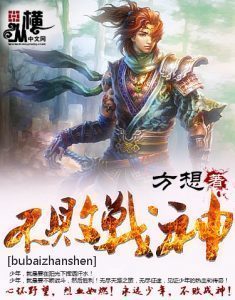
Undefeated God of War
方想
Youth, is meant to be used to shed sweat under the sun!Youth, is to continuously engage in battles, and secure the win!
My Entire Class Was Summoned to Another World except for Me
サザンテラス
A god of a different world had abruptly appeared in my classroom and semi-forcibly summoned the entire class to his worl
I Stayed At Home For A Century, When I Emerged I Was Invincible
Halfway Breeze
Chu Xuan transmigrated to a fantasy world and became the young master of a powerful family. He was rebuked for misbehavi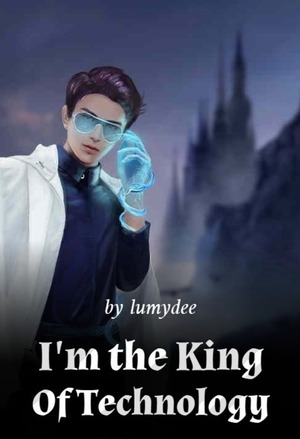
I'm the King Of Technology
Lumydee
Chu Yi dies in a car crash and becomes Landon Barn, the illegitimate son of king Barn, ruler of Arcadina. Because his mo
Kiss Me Goodnight, Mrs. CEO!
黛蜜儿
In the middle of the night, looking at the woman in his embrace, he smiled devilishly, “With your discontentment, do y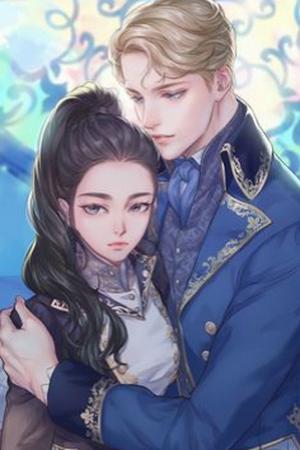
A Man Like None Other
Unknown
Read A Man Like None Other by . Genre: Chinese novels. Read the full novel online for free here.Jared Chance seethes wit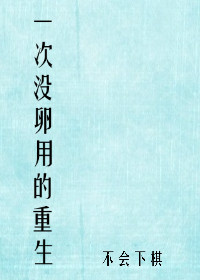
One Useless Rebirth
不会下棋
He Bai won the lottery, became rich, and reached the pinnacle of life. Then, he inadvertently took a picture of the Film